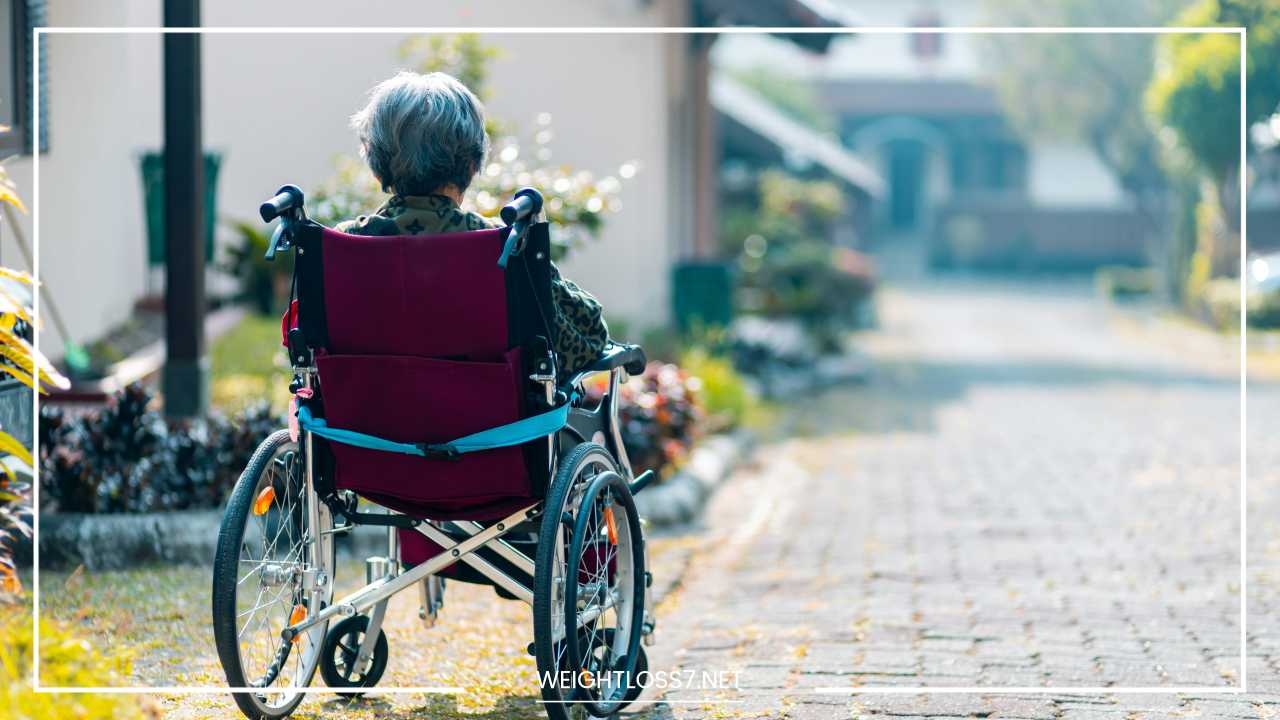Dementia: Causes, Symptoms, Diagnosis, and Care

Dementia
Understanding Dementia: A Comprehensive Guide for Caregivers and Loved Ones
Dementia, a term encompassing a decline in cognitive abilities that disrupts daily life, affects millions globally. With an aging population, its prevalence is projected to rise.
While incurable, treatments and support systems exist to empower individuals with dementia and their caregivers.
This blog post delves into dementia, exploring its types, causes, symptoms, diagnosis, treatment approaches, and available support resources.
Types of Dementia: Understanding the Variations
Dementia manifests in various forms, each with distinct causes and symptom presentations. Let’s explore the most common types:
-
Alzheimer’s Disease: The most prevalent type, accounting for 60-80% of cases, Alzheimer’s disease is a progressive neurodegenerative disorder. It assaults brain cells responsible for memory, thinking, and language.
-
Vascular Dementia: Caused by damage to blood vessels in the brain, often due to strokes or other vascular issues, vascular dementia can present with a sudden cognitive decline or a gradual progression.
-
Lewy Body Dementia: This type is characterized by Lewy bodies, abnormal protein deposits within the brain. It presents with a variety of symptoms, including cognitive decline, movement problems, and hallucinations.
-
Frontotemporal Dementia: Affecting the frontal and temporal lobes, the areas governing personality, behavior, and language, frontotemporal dementia leads to changes in these aspects.
Causes of Dementia: Unveiling the Underlying Factors
The root cause of dementia varies depending on the type. Here are some common contributing factors:
-
Abnormal Protein Deposits: In Alzheimer’s and Lewy body dementia, the accumulation of abnormal protein deposits in the brain damages brain cells and disrupts communication between them.
-
Strokes: Strokes can damage brain tissue, potentially leading to vascular dementia.
-
Head Injuries: Severe head injuries can increase the risk of dementia later in life.
-
Chronic Health Conditions: Conditions like high blood pressure, diabetes, and heart disease can elevate the risk of dementia.
-
Age: The risk of dementia undeniably increases with age.
Symptoms of Dementia: Recognizing the Warning Signs
The symptoms of dementia vary based on the type and severity. However, some common warning signs include:
-
Memory Loss: One of the earliest and most prominent symptoms, individuals with dementia may forget recent events, conversations, or names.
-
Challenges with Thinking and Problem-Solving: Planning ahead, making decisions, or following instructions can become difficult for those with dementia.
-
Language Difficulties: Finding words, speaking in complete sentences, or comprehending what others say can be challenging.
-
Disorientation: Getting lost in familiar places or confusion regarding the date and time are common occurrences.
-
Poor Judgment: Making poor choices regarding finances, safety, or personal hygiene can be a sign of dementia.
-
Personality Changes: People with dementia may become withdrawn, irritable, or even aggressive.
-
Loss of Coordination: In some cases, balance, walking, and other physical activities may be affected.
Diagnosis of Dementia: A Multifaceted Approach
There’s no single test to diagnose dementia. Doctors typically employ a multi-pronged approach:
-
Detailed Medical History: A comprehensive review of the individual’s medical history sheds light on potential contributing factors.
-
Physical and Neurological Exams: A physical and neurological exam helps assess overall health and identify any neurological abnormalities.
-
Cognitive Tests: Standardized cognitive tests evaluate memory, thinking, and problem-solving abilities.
-
Imaging Tests: In some cases, imaging tests like MRI or CT scans may be ordered to rule out other causes of cognitive decline.
Treatment Options for Dementia: Managing Symptoms and Improving Quality of Life
While there’s no cure for dementia, treatments can manage symptoms and enhance quality of life. These include:
-
Medications: Medications exist to improve memory, thinking, and behavior in individuals with dementia.
-
Therapies: Occupational therapy helps maintain independence with daily activities, speech therapy addresses communication challenges, and physical therapy focuses on improving balance and coordination.
-
Support Groups: Support groups provide social interaction, emotional support, and a sense of community for both individuals with dementia and their caregivers.
-
Lifestyle Modifications: Maintaining a healthy lifestyle with regular exercise, a balanced diet, and adequate sleep can potentially slow the progression of dementia.
Living with Dementia: A Guide for Caregivers
Living with dementia presents challenges for both the individual and their loved ones. Here are some tips to empower caregivers:
-
Educate Yourself: In-depth knowledge about dementia equips you to better care for your loved one. Understanding the disease process, treatment options, and available support resources empowers you to make informed decisions.
-
Create a Safe and Supportive Environment: Ensure the living environment is safe and dementia-friendly. Remove potential hazards, provide clear signage, and maintain consistent routines. This fosters a sense of security and reduces confusion.
-
Communication Strategies: Develop effective communication strategies. Speak slowly and clearly, use simple sentences, and focus on nonverbal cues. Validate their feelings and avoid arguing.
-
Maintaining Independence: Encourage independence for as long as possible. Break down tasks into smaller, manageable steps and provide assistance when needed. Respect their choices and offer support without being overbearing.
-
Self-Care for Caregivers: Caring for someone with dementia can be emotionally and physically demanding. Prioritize your own well-being. Engage in activities you enjoy, seek support from friends and family, and don’t hesitate to utilize respite care services when needed.
The Importance of Early Detection and Intervention
Early detection of dementia allows for prompt intervention and management strategies. This can significantly improve quality of life for the individual and their caregivers. Here’s what you can do:
-
Be Aware of the Signs: Familiarize yourself with the early warning signs of dementia. If you notice any changes in your loved one’s cognitive abilities, behavior, or personality, encourage them to see a doctor.
-
Advocate for Your Loved One: Accompany your loved one to doctor appointments and actively participate in discussions. Ask questions, voice concerns, and ensure you understand the diagnosis and treatment plan.
-
Seek Support and Resources: Numerous organizations provide support and resources for individuals with dementia and their caregivers. Explore online resources, local support groups, and dementia care specialists.
Living a Fulfilling Life with Dementia
While dementia presents challenges, there are ways to create a fulfilling life for the individual. Here are some tips:
-
Focus on Strengths and Abilities: Don’t dwell on lost abilities. Identify and nurture remaining strengths and abilities. Engage in activities they enjoy, whether it’s music, art, spending time outdoors, or socializing with loved ones.
-
Maintaining Social Connections: Social interaction is crucial for cognitive stimulation and well-being. Encourage continued contact with friends and family. Explore dementia-friendly social activities or programs.
-
Creating a Sense of Purpose: Having a sense of purpose can be incredibly beneficial. Explore opportunities for volunteering or participation in meaningful activities adapted to their abilities.
The Road Ahead: Research and Future Directions
Research in dementia is ongoing, with scientists striving to develop new treatments and, ultimately, a cure. Here’s a glimpse into promising areas of research:
-
Early Detection Biomarkers: Identifying biomarkers that can detect dementia at earlier stages is a crucial area of research. This would allow for earlier intervention and potentially slow disease progression.
-
Novel Drug Therapies: Researchers are exploring new drug therapies targeting various aspects of the disease process, aiming to slow or prevent neurodegeneration.
-
Gene Therapy: Gene therapy holds promise for modifying genes linked to dementia, potentially offering a more targeted treatment approach.
Hope and Support for the Dementia Journey
Dementia can be a daunting journey, but there is hope. With early detection, proper management strategies, and access to support resources, individuals with dementia and their caregivers can navigate this journey with greater ease.
By promoting awareness, advocating for research, and fostering a supportive environment, we can create a brighter future for those living with dementia.
Dementia: A Compassionate Approach
Beyond the medical aspects of dementia, fostering a compassionate approach towards individuals living with the condition is paramount. Here are some ways to cultivate a more understanding and supportive environment:
-
Empathy and Validation: Imagine experiencing the world differently. Approach interactions with empathy, validating their feelings and experiences. Listen actively and avoid correcting or minimizing their concerns.
-
Maintaining Dignity and Respect: Dementia doesn’t diminish a person’s dignity or right to respect. Treat them with courtesy and consideration, using their preferred name and involving them in decision-making whenever possible.
-
Positive Communication: Maintain a positive and encouraging tone in communication. Focus on strengths and abilities, offering praise and reassurance. Avoid negativity, criticism, or arguing.
-
Patience and Understanding: Changes in behavior or communication can be frustrating. Respond with patience and understanding. Allow extra time for responses and avoid taking things personally.
-
Focus on the Present Moment: Individuals with dementia often live in the present moment. Engage in activities they enjoy in the here and now, creating positive memories. Reminiscing about the past can be enjoyable, but be mindful of potential emotional triggers.
-
Humor can be Therapeutic: Laughter can be a powerful tool. Use humor appropriately to lighten the mood and connect with your loved one.
-
Art Therapy and Music Therapy: Creative outlets like art therapy and music therapy can be incredibly beneficial for individuals with dementia. Engaging in these activities can promote relaxation, self-expression, and emotional well-being.
Beyond the Individual: Supporting Caregivers
While our focus is on the well-being of those with dementia, supporting caregivers is equally crucial. Here are some additional tips:
-
Join a Support Group: Connecting with others who understand the challenges of caring for someone with dementia can be invaluable. Support groups provide a safe space to share experiences, learn coping mechanisms, and gain emotional support.
-
Respite Care: Caring for someone with dementia can be emotionally and physically draining. Don’t hesitate to utilize respite care services that provide temporary relief. This allows you time to recharge and maintain your own well-being.
-
Financial Planning: Dementia care can be expensive. Explore financial resources and plan for the future. Talk to an elder law attorney to understand legal options and ensure your loved one’s financial security.
-
Mental Health Support: Caring for someone with dementia can take a toll on your mental health. Don’t hesitate to seek professional help from a therapist or counselor. Prioritize your own mental well-being to be a stronger caregiver.
Remember, you are not alone. Numerous organizations offer support and resources for caregivers. Explore online resources, local support groups, and dementia care specialists.
Final Word: Building a Brighter Future for Dementia Care
Dementia may be a progressive condition, but with early detection, effective management, a compassionate approach, and ongoing research, we can create a brighter future for individuals living with dementia and their caregivers.
By promoting awareness, advocating for research funding, and fostering supportive communities, we can empower individuals with dementia to live fulfilling and meaningful lives.
We hope this blog post has provided valuable information and resources for those affected by dementia. Remember, with knowledge, empathy, and a commitment to support, we can navigate this journey together.

















